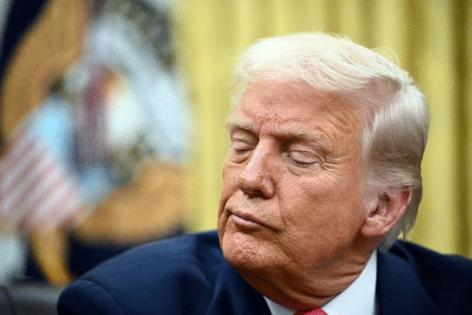Editorial: Anti-bribery law's pause is a gift to corrupt competitors
Published in Op Eds
The White House claims American companies are losing business abroad because U.S. law prohibits them from paying bribes. That’s just one of the fictions underpinning its ill-advised decision to pause enforcement of the Foreign Corrupt Practices Act, a move that threatens to unravel decades of progress in global anti-corruption efforts.
The administration argues that the FCPA has been “stretched beyond proper bounds” and “abused in a manner that harms the interests of the United States.” One can argue about the wisdom or propriety of any particular corruption probe. But on balance, this sentiment gets things backward: The law is both good for business and for America’s broader global interests.
Whatever the short-term payoff for individuals or companies that pay bribes, when resources go to corruption instead of research, reward shortcuts over merit, and encourage rent-seeking rather than value creation, growth and innovation will suffer. Costs and distortions will proliferate as firms offload corruption expenses onto consumers.
When the FCPA was enacted in 1977, the U.S. stood mostly alone in banning such practices. In some countries, bribes were even tax-deductible. Thanks largely to U.S. influence — and pressure from businesses that stand to lose when the rules are unclear or unevenly applied — the law has become the global standard, with 46 countries signed up to a convention on anti-bribery. Yes, palms still get greased at times, but credible penalties and consistent enforcement act as strong deterrents to routine corruption.
It’s also false that the law has been applied unfairly to American companies. For one thing, the FCPA applies to any firm — foreign or domestic — that trades on U.S. exchanges or uses the American banking system. More than 40% of FCPA enforcement actions have been against foreign companies, as have nine of the 10 largest sanctions imposed. Even as a matter of pure self-interest, the benefit for U.S. companies of being able to appeal to such a law when asked to pay bribes isn’t one that should be abandoned lightly.
More to the point, simply pausing enforcement (for six months, the administration says) puts American businesses in a terrible position. Bribe-seekers may well be emboldened by the pause. Yet the law remains in effect, with a statute of limitations that lasts up to six years. Its accounting stipulations — enforced by the Securities and Exchange Commission — remain in place regardless, as do foreign anti-bribery laws. No responsible company would risk violating the FCPA under such conditions, and thus any theoretical benefits of this policy would accrue only to their less scrupulous competitors.
Longer-term, pausing or diluting the FCPA will simply encourage corruption and diminish American influence. As the U.S. retreats from enforcement, others will likely follow, and bribery may once again become the norm rather than the exception — to no one’s benefit except foreign kleptocrats.
That isn’t to say that the FCPA can’t be improved. Its compliance burden, in particular, is too burdensome: The average FCPA investigation takes more than three years to complete, during which companies often fork out millions in legal fees and investigative costs. More consistent guidance and less onerous penalties for companies that demonstrate good-faith compliance might offer some relief for the law-abiding.
As for the administration’s claim that the law hinders U.S. competitiveness, again, there is an element of truth: As things stand, countries such as China and India have no meaningful foreign bribery laws, despite being parties to the United Nations Convention Against Corruption, and Japan and South Korea don’t fare much better. But the logical response to such concerns isn’t a race to the bottom. The U.S. should instead insist that all Group of 20 nations sign up to the same standards and demand better enforcement.
Six months should be plenty of time to rethink a miscalculation that would only embolden the worst actors in global commerce and cede decades of U.S. leadership.
____
The Editorial Board publishes the views of the editors across a range of national and global affairs.
©2025 Bloomberg L.P. Visit bloomberg.com/opinion. Distributed by Tribune Content Agency, LLC.




























































Comments